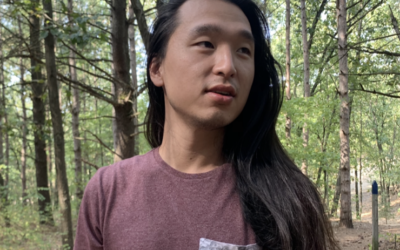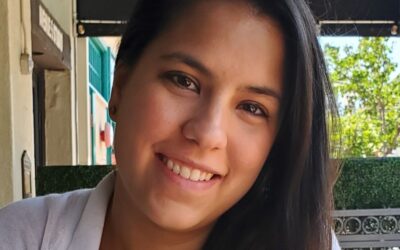miCRo: “My Legs Are Salwar Starchy” by Huma Sheikh
In just nine lines, some only one or two words in length, Sheikh uses the salwar kameez as a guiding image to unravel a reflection on girlhood.
miCRo: “31” by Christian Aldana
A take on “Dream Song 31,” Aldana’s poem follows in a long line of erasure poems critiquing a found text—but unlike traditional erasures, “31” reorders elements of the original text.
miCRo: “Ashley” by Kathryn Diaz
In her short fiction piece “Ashley” Kathryn Diaz pairs the directness of her prose with tangled complications relating to sexuality and friendship.
miCRo: “At night: maybe sleeping” by Sean Cho A.
By the poem’s end, the concept of “home” is destabilized and precarious. What is to be done when one kind of homemaking destroys another?
miCRo: “Caul” by Cristi Donoso Best
Cristi Donoso Best’s “Caul” opens in medias res with the birthing of a calf. As the child-aged speaker observes the scene, the poem moves cinematically between the birth and the act of watching.
miCRo: “What I Know about Space” by Melissa Bowers
Melissa Bowers’s hybrid piece “What I Know About Space” uses descriptions of the cosmos as a distancing tactic, its vignettes functioning as satellites swirling around a deeper issue for the speaker.
miCRo: “Haunting Season” by Cindy Juyoung Ok
Cindy Juyoung Ok’s “Haunting Season” opens with a declaration that “the hunt” has begun. What follows is a series of reflections on the concept of the self, especially the self under surveillance, the self as an Othered reflection.
miCRo: “End of the Year Poem, 2020” by Zhihao Zhang
Translated by Yuemin He, “End of the Year Poem, 2020” by Zhihao Zhang begins where many of us begin our days (regularly, but perhaps especially during a global pandemic): looking at our phones. This mundane act gives way to a reflection that, like the year 2020 itself, is filled with rote action, uncertainty, and contradiction.
miCRo: “The Hoard” by Dev Murphy
The speaker of Dev Murphy’s hybrid piece “The Hoard” uses the words of literary figures to examine and reexamine love and desire, creating a hoard within the text itself, which she reshapes throughout the piece.
miCRo: “Sonnet and a Half for Conceit of the Heart” by Satya Dash
This poem’s form is a sonnet-and-a-half that drives the reader onward; in the end, we’re left in the middle.
miCRo: “Two Moments Above and Below” by Austyn Wohlers
“Two Moments Above and Below,” like many stories, begins with a bird—but instead of the singular, symbolic flash of color that many birds seem to be in books and movies, the opening pigeon is iridescent, indefinable.
miCRo: “A Young Woman Made Up of Dirt” by R. Cross
In this twist on a creation myth, R. Cross’s “A Young Woman Made Up of Dirt” explores self-definition and womanhood through the speaker’s musings on her formation and destruction.

















